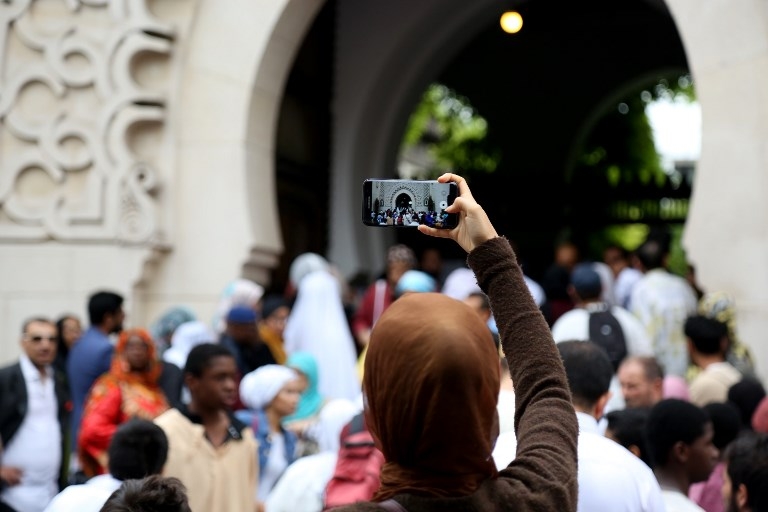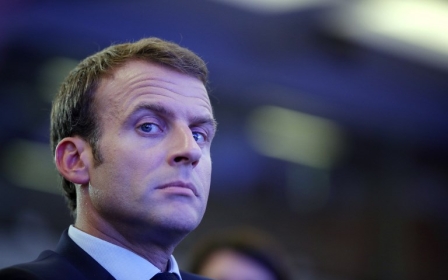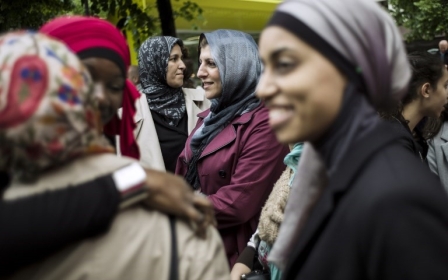French think tank calls for 'halal tax' on Muslims

France should impose a "halal tax" to pay for an association that would govern Muslims practicing in the country, a French think-tank has recommended in a report published on Monday.
In its report "The Islamist Factory", the Institut Montaigne also proposes that instead of being instructed in mosques, the Arabic language should be learnt in more state schools, following a national curriculum.
The recommendations come as President Emmanuel Macron has promised to redefine relations between Islam and the state and establish rules this autumn to ensure that the religion “will be practised everywhere in accordance with the laws of the republic”.
The official rule is strict separation between religion and state, with the former considered a strictly private matter.
The rule has been used to justify bans on the wearing of Muslim veils by public service employees as well as any wearing of fully concealing head-to-toe veils in public places.
Macron has been under pressure after a wave of terrorist attacks since 2015, which have killed more than 230 people in France.
In the report, Hakim El Karoui, a Franco-Tunisian consultant, writes that Salafis are “gaining ground” among Muslims practicing in France, particularly among young people and France should construct its own “Muslim religious discourse” to challenge the Salafi discourse.
"France must equip itself with important means and networks to disseminate this counter-speech. Who can do it? Muslims,” he writes.
Despite any reluctance they might have, Muslims in France and Europe “must mobilise... because the solution will come from them,” he writes.
Karoui's report also suggests once again that the country should establish a national Muslim association through taxes collected from practicing Muslims, a measure that his institute has proposed before.
“The idea is to create a neutral organisation, independent of the countries of origin, independent of those who hold the mosques today, to take a very small sum of money on every act of consumption and reinvest that money in theological work, because it's the mother of all the battles,” he writes.
In a follow up interview with AFP, Karoui suggested that taxable acts could include going on pilgrimages and buying halal products.
"Muslims have enriched themselves, contrary to what is believed, and they practice a lot," he told AFP. There is therefore "more and more money related to consumption: the pilgrimage, the halal, the gift".
Since the 1980s, French politicians have repeatedly attempted to formulate a "French Islam", with the dual aim of managing the integration of immigrants and also defending against religiously-inspired violence.
But these attempts have been met by criticism from Muslim leaders in the country, where 5.7 million Muslims make up the second largest religious community.
"Everyone must stick to their role," Ahmet Ogras, president of the French Council of Muslim Faith, told Reuters earlier this year.
"The Muslim faith is a religion and, as such, takes care of its own household affairs. The last thing you want is the state to act as guardian."
The French Council of Muslim Faith was itself created by then-Interior Minister Nicolas Sarkozy in 2003. But according to a 2016 survey by Institut Montaigne, two-thirds of French Muslims interviewed didn't know what it was.
New MEE newsletter: Jerusalem Dispatch
Sign up to get the latest insights and analysis on Israel-Palestine, alongside Turkey Unpacked and other MEE newsletters
Middle East Eye delivers independent and unrivalled coverage and analysis of the Middle East, North Africa and beyond. To learn more about republishing this content and the associated fees, please fill out this form. More about MEE can be found here.




